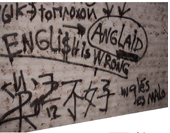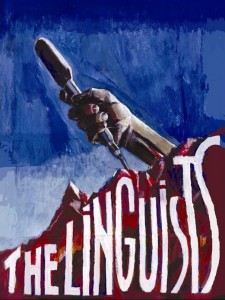Now anyone can watch The Linguists
As I announced on Thursday, David Harrison was just here in the San Diego wing of Language Log Plaza to screen and discuss the film The Linguists, at UC San Diego on Thursday and at San Diego State University on Friday. Both events were hugely successful — a fantastic turnout of around 150 people at each screening. David then headed to Rutgers University (my graduate school alma mater, as it happens) for a similar event during Rutgers Day on Saturday, where I'm sure the turnout was also great.
In case you missed all of these screenings, or if your PBS station didn't air it (or you don't get even have a PBS station!), or if you just want to see it again, the film is streaming for a limited time at Babelgum. Click and watch!
 So proclaims the cover of Michel Brûlé's "Essai sociologique"
So proclaims the cover of Michel Brûlé's "Essai sociologique" 